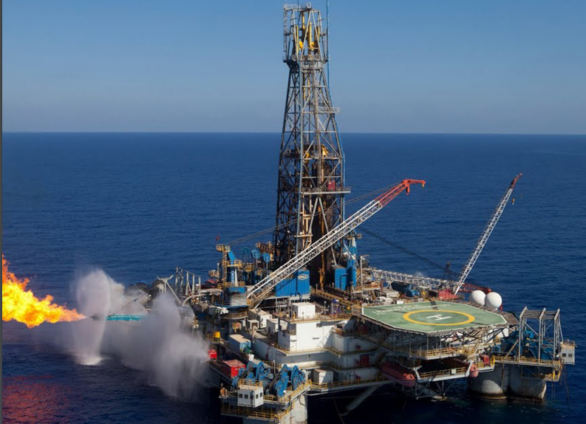After a decade of the implementation of the Petroleum Revenue Management Act (PRMA), the Public Interest and Accountability Committee (PIAC) wants a timely assessment of Ghana’s management and use of petroleum revenues to identify areas of strength and weakness to strategise for the future.
This encompasses an assessment of performance of the institutions assigned duties by the PRMA for the past decade and evaluation of the socio-economic impact of the management and use of petroleum revenue on the development of Ghana.
A member of PIAC, Dr. Emmanuel Y. Tenkorang, said findings will be shared with government institutions, key stakeholders, including the International Oil Companies (IOCs), Civil Society Organisations (CSOs), development partners, the media, and the public.
The key assessment will include benchmarking assessment of the performance of relevant institutions, petroleum production and sales, revenue collection and management, revenue distribution, allocation and utilization, Annual Budget Funding Amount, management and performance of Ghana Petroleum Funds (GPFs) and revenues allocated to the Ghana National Petroleum Corporation.
He pointed out that Ghana has, as of 2021, enacted the necessary legal framework to govern its oil industry, but in respect of decommissioning, regulations are yet to be passed.
“Ghana’s Model Petroleum Agreement (2000) has been modified over time and culminated in the modified/updated Model Petroleum Agreement (2019). Unlike the earlier ones, the latter petroleum agreements do not contain freezing stabilisation clauses. This positive development allows the state and investors to renegotiate contract terms as economic conditions necessitate. There is, however, the need to ensure that a material change has been well-established before changes are made to a petroleum agreement”, he outlined further.
Dr. Tenkorang however noted that the country has made commendable efforts to try and increase the revenue that accrues to the State by making changes in legislation to control petroleum costs claimed by the IOCs, statutorily increasing its Carried Interest stake, and contractually preventing the petroleum agreement from being a fiscal enclave in respect of taxes and imposts that the State can levy.
However, there is the need for a laser-like approach to cost monitoring as this, along with transfer pricing, is one of the significant pathways the State loses money in the industry.
Management of GPFs
Dr. Tenkorang added that the lack of a clearly defined investment policy has constrained the ability of Fund Managers to earn higher returns on the GPFs.
These constraints were also compounded by the non-constitution of the Investment Advisory Committee (IAC) between 2017 and 2019, leading to organisations such as PIAC citing breaches of the PRMA.
“We find that 74% of the withdrawals from the GSF have been used for debt repayment, while 21% has been allocated to the Contingency Fund to deal with national emergencies such as the COVID-19 pandemic. Interestingly, only 4% has been utilised to shore up ABFA shortfalls.”
Dr. Tenkorang further mentioned that these debt repayments are symptomatic of developments within the Ghanaian economy over the past decade, adding, due to low domestic revenue mobilisation, increased interest payments have occasioned excessive borrowing (both domestically and externally) to meet budgetary shortfalls.
“Ghana’s debt servicing needs have become expensive due to the high coupon rates and volatility of the cedi, the local currency. Given the historically low returns, there is a need to rethink the GPFs' investment strategy to generate comparable returns to a benchmark portfolio”, PIAC said.
Latest Stories
-
Paris 2024: Opening ceremony showcases grandiose celebration of French culture and diversity
3 hours -
How decline of Indian vultures led to 500,000 human deaths
4 hours -
Paris 2024: Ghana rocks ‘fabulous fugu’ at olympics opening ceremony
4 hours -
Trust Hospital faces financial strain with rising debt levels – Auditor-General’s report
4 hours -
Electrochem lease: Allocate portions of land to Songor people – Resident demand
5 hours -
82 widows receive financial aid from Chayil Foundation
5 hours -
The silent struggles: Female journalists grapple with Ghana’s high cost of living
5 hours -
BoG yet to make any payment to Service Ghana Auto Group
5 hours -
‘Crushed Young’: The Multimedia Group, JL Properties surprise accident victim’s family with fully-furnished apartment
6 hours -
Asante Kotoko needs structure that would outlive any administration – Opoku Nti
6 hours -
JoyNews exposé on Customs officials demanding bribes airs on July 29
7 hours -
JoyNews Impact Maker Awardee ships first consignment of honey from Kwahu Afram Plains
8 hours -
Joint committee under fire over report on salt mining lease granted Electrochem
8 hours -
Life Lounge with Edem Knight-Tay: Don’t be beaten the third time
8 hours -
Pro-NPP group launched to help ‘Break the 8’
8 hours

